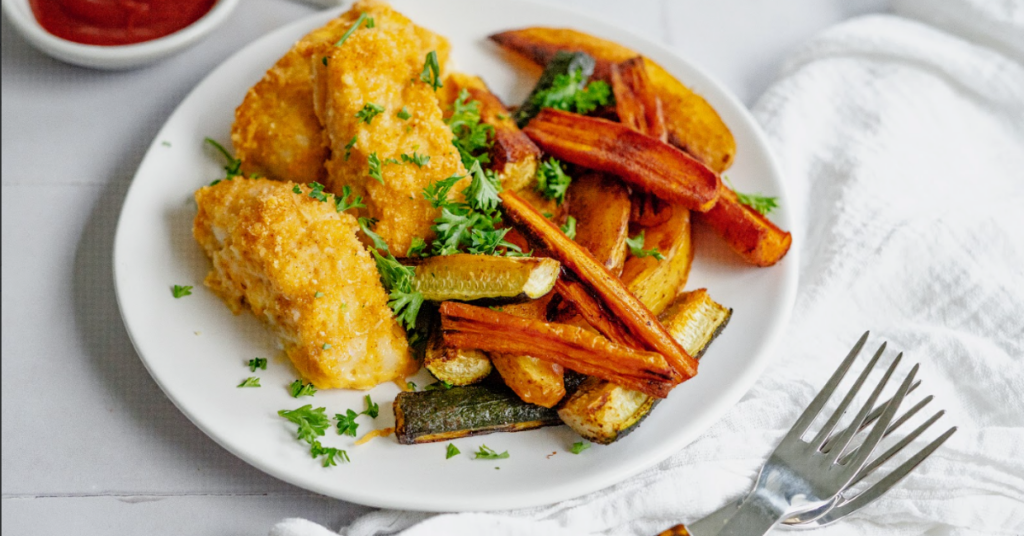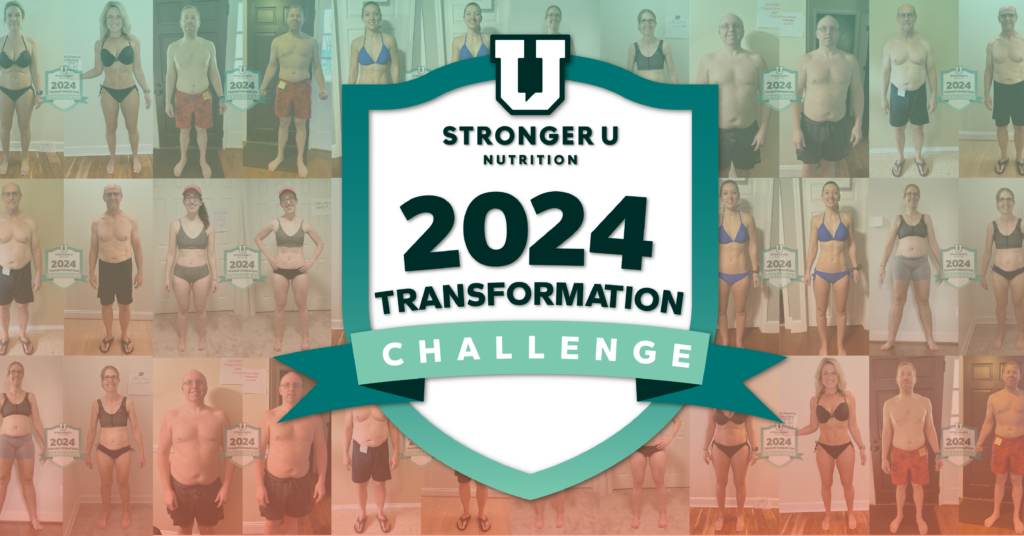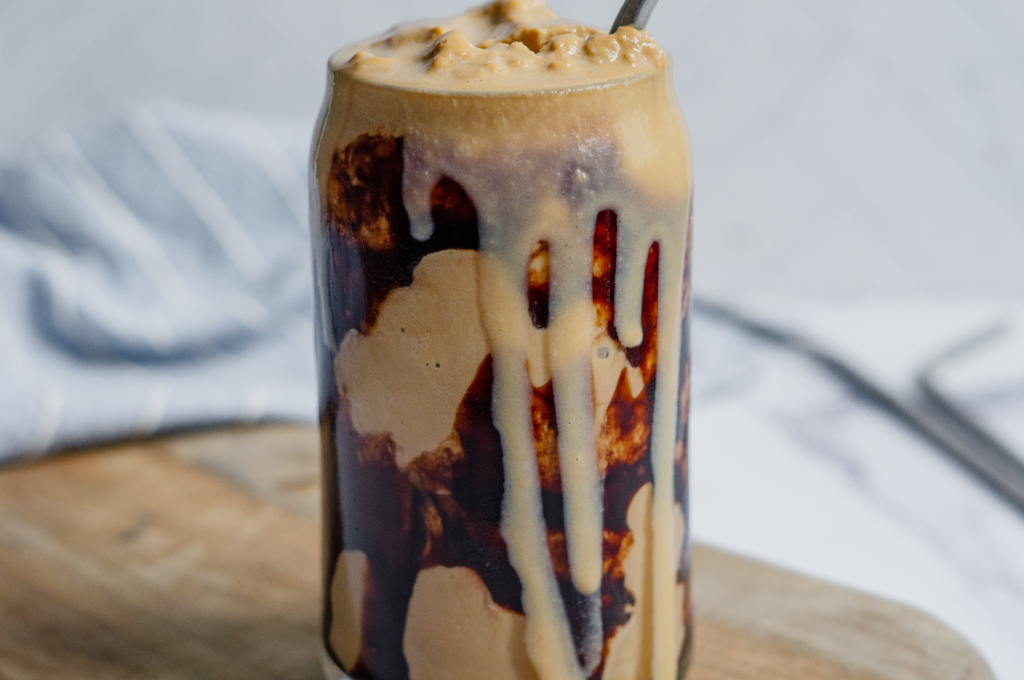Dieting & Weight Loss Myths Debunked: Separating Fact from Fiction
Dieting can be confusing; we’ll help you separate fact from fiction by debunking the biggest weight loss myths to arm you with the knowledge you need to make the best choices right from the start if you decide you’d like to lose some weight. Plus, learn some of our most important insights for successful weight loss.
Myth: Skipping meals can help you lose weight (or, skipping breakfast aids weight loss)
This CAN be TRUE. Some people find it helpful to reduce the number of times they eat throughout the day to help them manage their overall calorie intake. For example, if someone chooses not to eat breakfast, they are removing all the calories that would have been eaten at that meal from their daily intake, which can help them stay in a calorie deficit (Levitsky, 2013). However, this does not work for everyone. Some people who skip breakfast may then feel extra hungry and end up eating MORE during the rest of the day if they skip breakfast.
Overall, it comes back to the principles of energy balance, which are an important basis of much of the conversations we will have in this blog today. While MANY factors impact each side of the equation, ultimately, weight is determined by the comparison between the energy you consume and the energy you expend (Hill, 2012). To lose weight, you need to eat less than you expend consistently for a period of time.
The meal that gets the most attention in the skipping department is breakfast. You hear things like “breakfast is the most important meal of the day,” but you’ll also hear that waiting to eat until noon (aka skipping breakfast) is the best choice. For more on how breakfast impacts weight loss, check out this blog.
Observational research is mixed but generally finds that people who skip breakfast weigh more (Ma, 2020). However, looking at this in more detail, other lifestyle factors likely drive these findings. Specifically, people who eat breakfast also tend to follow other healthy behaviors.
Others have hypothesized that eating breakfast or eating more often boosts your metabolism. However, that has also been determined to be false (Kobayashi, 2013).
Therefore, skipping a meal (such as breakfast) CAN be a helpful technique for some people to eat less in a way that works great for them, but it may have the opposite impact on others. Try both out and decide what works best for you while understanding that it’s not skipping a meal that makes the difference; it’s making the choices that lead to you eating fewer calories that will help you lose weight.
Myth: You shouldn’t eat late at night or after a specific time (ex. Don’t eat after 7pm)
Similar to the response to skipping meals, the response to this myth is really individualized. Nothing specific about eating after 7 pm will lead someone to gain weight or prevent them from losing weight but setting some time limits on when you eat can be a helpful method to control calorie intake. If you find that you tend to reach for the bag of chips while watching TV or that you are in the habit of eating a large bowl of ice cream right before bed each night, even when you know that doesn’t support your current goals, setting some limits such as not eating after a specific time can help you with creating new supportive habits! Also, pay attention to how you feel when you go to bed and if the time you eat impacts your ability to sleep – some people may experience some issues with digestion or acid reflux if they lay down too soon after eating. At the same time, others may have difficulty falling asleep If they are feeling too hungry.
Fact: You should eat more protein when trying to lose weight
This is TRUE. When most people enter a weight loss journey, they don’t want to just weigh less on the scale, they want to reduce body fat (not muscle). To put your body in the best environment possible to maintain muscle mass while losing weight, consuming adequate protein is important (Cava, 2017; Hudson, 2020; Leidy, 2015).
In addition to supporting muscle, protein can also help you manage hunger during weight loss because it has been found to be the most satiating macronutrient (a high protein meal keeps you full longer than a meal high in carbs or fats) (Brennan, 2012). Protein also requires more energy to digest than carbs or fat and is the least likely to be stored as fat – both of which add to the benefits of eating more protein when trying to reduce body fat (Paddon Jones, 2008).
Clearly, there are many reasons that increasing protein while losing weight can be beneficial!
Myth: You should avoid carbs if you want to lose weight
This is FALSE. While eating too many carbohydrates may be a leading cause for people eating too many calories, the types of carbohydrates consumed have an important impact. Reducing carbohydrates by eliminating unwanted high-carb snacks like cookies, cakes, chips, pretzels, and crackers and substituting them with more filling and higher fiber carbs like vegetables and fruit can actually promote weight loss.
Since glucose is the primary source of energy for your body, if you avoid or greatly restrict carbohydrate intake, you may feel significant drops in energy levels, experience headaches or a lack of focus as well as altered sleeping habits. If you have no energy and aren’t sleeping well, your brain can feel foggy and you may have less desire to move your body or exercise. This can cause your overall caloric expenditure throughout the day to go down which can potentially even slow down weight loss.
Carbs do not need to be avoided! In fact, they are an essential part of your diet. Most of the time, higher fiber, more filling carb options (like fruits, veggies, and whole grains) can support your weight loss goals (Dreher, 2020).
Myth: Eating fat makes you gain fat
This is FALSE (Willett, 2002). Overeating fat can cause weight gain, but only if it causes you to eat too many calories overall. Some popular diets promote a very high fat intake, and people can absolutely lose weight following them! Why? Remember that weight loss is primarily dependent on eating fewer calories than you expend. So, if you eat less calories, even though you are eating a lot of fat, you will lose weight.
However, eating a high-fat diet can make eating fewer calories more challenging for many people. Every gram of fat you eat has more than double the number of calories that you get from either a gram of carbs or protein, making it easy to overeat calories when you eat a lot of fat. For most people, consuming a diet that is moderate in fat (not too high and not too low) and keeps you in an appropriate calorie range is the best option for weight loss and weight management.
Fat also provides essential nutrients and is required for us to absorb fat-soluble vitamins. So, while reducing fat a bit can help make reducing overall calories a bit easier, don’t take it to extremes. Include small amounts of healthy fats such as unsaturated oils, avocadoes, nuts and olives with your meals and snacks.
Myth: It doesn’t matter what you eat as long as you count calories (all calories are equal)
All calories are equal in the sense that a calorie is a unit of measurement and 1 calorie of any type of food has the same amount of energy as 1 calorie from any other type of food (much like a pound of feathers weighs the same as a pound of rocks —they both weigh 1 pound!). However, it absolutely does matter where these calories come from! The types of foods you choose to eat can impact your weight loss success (from their effect on hunger, satiety, blood glucose, and insulin levels and how your body metabolizes them) and overall health. Food provides us with so much more than just calories, including all the nutrients we need from foods, such as vitamins, minerals, antioxidants, fiber, and more! While energy balance and how much we eat is the key to determining weight, what we eat is still very important!
Myth: A radical exercise regime is the only way to lose weight
This is FALSE. You do not need to spend endless hours in the gym or out on the track to lose weight!
The Physical Activity Guidelines recommend a combination of 150 minutes of moderately intense cardiovascular exercise – walking or light jogging or any form that you prefer, along with lifting weights at least two times per week to hit all the major muscle groups is a great goal to aim towards (Department of Health and Human Services, 2018).
This level of exercise provides both physical and mental health benefits. However, most research suggests that making changes in your diet is a more effective method for weight loss than increasing activity (Donnelly, 2005). Extreme exercise can lead to fatigue, impact sleep schedules and increase the risk for injuries – severely limiting your activity levels. Many people also find that they experience increased levels of hunger with increased activity. With this increased hunger, they can be triggered to eat more food. We tend to overestimate how many calories we burn through activity and eat back more than the burned calories.
Exercise is extremely important, and you should develop a plan to hit the recommended amounts, but more is not necessarily better and may even inhibit your weight loss efforts.
Myth: Going gluten-free is the solution to weight loss
Gluten is a protein found in wheat, barley and, rye. People with celiac disease or gluten sensitivity have issues digesting this protein and need to eat a diet free from gluten. Thankfully, for these individuals, there are many more gluten-free food options available for them in stores than ever before.
How about a gluten-free diet for weight loss? Gluten-free foods are not better for weight loss than their gluten-filled alternatives. Items like gluten-free bread and crackers can actually often have more calories and carbs! Additionally, gluten-free foods tend to be lower in fiber and other important nutrients (El Khoury, 2018), making managing hunger and weight potentially more challenging. A gluten-free diet is not intended to be a weight loss diet; it is necessary for people with a medical condition.
So, why do some people report weight loss success when they have gone gluten-free? It’s likely because when they remove gluten from their diets, they have also removed higher-carb processed foods that include gluten. If someone replaces bread with a salad or cookies with a piece of fruit, those changes support lower calorie intake that can lead to weight loss.
Now if you must be gluten-free for a medical reason, you absolutely can still lose weight! You need to moderate the amount of food you eat compared to the activity you are completing, just like weight loss requires with any diet.
Myth: Some sugars are worse than others/Cut out all sugar to lose weight
When people talk about sugar, most are referring to sucrose, the white sugar that we buy to add to our coffee or for baking. This is one common type of sugar in our diets. However, in reality, all carbohydrates are technically made up of “sugar” and our bodies treat them the same after our body digests and absorbs them, no matter the original source. During digestion, all carbohydrate foods are broken down into monosaccharides (primarily glucose) to supply our bodies with energy.
We can head back up to the carbohydrate discussion from before that carbs and sugar are not bad, in fact, they are an important source of energy for our bodies! However, there is a benefit in reducing the amount of “added sugar” in our diets. Added sugars are sugars that are not naturally occurring in food. Manufacturers add sugar to foods for a variety of reasons, including to enhance flavor by making them sweeter. All that added sugar increases the calories in a food. Moderating the amount of added sugar you eat can be a helpful practice supporting weight loss because reducing added sugars can help reduce the overall calories you consume (Warshaw, 2021).
Myth: It is impossible to lose weight during/after menopause
This is a discussion that deserves its own full-length blog! I don’t want to minimize the challenges that are associated with weight management during the menopause transition, as there are many, but it hopefully feels good to know that is it not impossible to lose weight during or after the menopause transition! There are, however, many hormonal changes that promote less than typically desirable body composition changes, such as loss of muscle and bone mass promoted by reduced estrogen, changes in sleep patterns that can impact hormones leading to feelings of exhaustion, increased hunger, and irritability, and changes in cortisol levels that can change where fat is distributed on the body. Not to mention the high level of demands on a woman’s life that are concurrent with this transition such as caring for children and parents, maintaining a job and personal relationships, and enumerable other stressors that impact women at this age despite their menopause status. Most research shows that it’s these changes in lifestyle that result in less movement and energy expenditure that result in much of the weight gain experienced during this transition (Knight, 2021).
The best approach to managing your weight and health during this transition is to control what you can control. Work with your doctor on managing symptoms, as appropriate, and focus on building healthy habits such as consuming adequate protein, lifting weights to reduce the impact on bone and muscle health, moderating stress, and encouraging sleep as much as possible. Check out this Stronger U blog for more on this topic.
Conclusion: We’ve provided you with some information to fuel better decision-making regarding weight loss, but the question remains – what is the secret to weight loss? The secret is that there is no secret! It’s true that the “golden rule” for weight loss is that you need to eat fewer calories than you expend consistently for weight loss to occur. One of the biggest mistakes people make on their weight loss journey is going to extremes in either direction – cutting calories from food too excessively, cutting out entire food groups, or exercising too much in a way that’s not sustainable and increases the risk for injury. My advice is to find an approach that feels balanced and comfortable and doesn’t make you remove your favorite foods or force you to eat things you dislike. You also don‘t have to eat three meals daily, eliminate all snacks or stop eating at a certain time. You do need to find what feels most comfortable and supportive to you! For most people, tracking your food intake (specifically macros per day), focusing on eating protein, fruits, and veggies at every meal, moving your body daily, reducing stress, and increasing sleep, along with being patient throughout the process will help you move towards your goals without the rigid rules required by some of these myths! And as always, the quickest way to reach a goal is to work with a coach. A coach helps you stay on track, offers you support, and assists you in making changes to behavior that will not only help you lose weight but maintain your weight loss too!
So, the next time you hear something that sounds too good to be true, run it through your well-equipped internal fact checker and brush off any misinformation that comes your way!
For more personalized weight loss tips and guidance from an experienced registered dietitian or certified nutrition coach, learn more about becoming a Stronger U member.
References
Brennan IM, et al. Effects of fat, protein, and carbohydrate and protein load on appetite, plasma cholecystokinin, peptide YY, and ghrelin, and energy intake in lean and obese men, American Journal of Physiology-Gastrointestinal and Liver Physiology, 2012:303(1), G129-G140
Cava E, Yeat NC, Mittendorfer B. Preserving Healthy Muscle during Weight Loss, Advances in Nutrition. 2017;8(3): 511–519. https://doi.org/10.3945/an.116.014506
Donnelly JE, Smith BK. Is Exercise Effective for Weight Loss With Ad Libitum Diet? Energy Balance, Compensation, and Gender Differences. Exercise and Sport Sciences Reviews, 2005, 33(4): 169-174.
Dreher ML, Ford NA. A Comprehensive Critical Assessment of Increased Fruit and Vegetable Intake on Weight Loss in Women. Nutrients. 2020; 12(7):1919. https://doi.org/10.3390/nu12071919
El Khoury D, Balfour-Ducharme S, Joye IJ. A Review on the Gluten-Free Diet: Technological and Nutritional Challenges. Nutrients. 2018; 10(10):1410. https://doi.org/10.3390/nu10101410
Hill JO, Wyatt HR, Peters JC. Energy Balance and Obesity. Circulation. 2012;126:126–132 https://doi.org/10.1161/CIRCULATIONAHA.111.087213
Hudson J, Wang Y, Bergia R, Campbell W. Protein Intake Greater than the RDA Differentially Influences Whole-Body Lean Mass Responses to Purposeful Catabolic and Anabolic Stressors: A Systematic Review and Meta-analysis, Advances in Nutrition. 2020;11(3):548-558. https://doi.org/10.1093/advances/nmz106
Knight MG, Anekwe C, Washington K, Akam EY, Wang E, Stanford FC. Weight regulation in menopause. Menopause. 2021;28(8):960-965. Published 2021 May 24. doi:10.1097/GME.0000000000001792
Kobayashi E, et al. Effect of breakfast skipping on diurnal variation of energy metabolism and blood glucose, Obesity Research & Clinical Practice, 2014; 8(3), e249-e257, https://doi.org/10.1016/j.orcp.2013.01.001.
Leidy HJ, Clifton PM, Astrup A, et al. The role of protein in weight loss and maintenance. Am J Clin Nutr. 2015;101(6):1320S-1329S. doi:10.3945/ajcn.114.084038
Levitsky DA, Pacanowski CR. Effect of skipping breakfast on subsequent energy intake. Physiol Behav. 2013;119:9-16. doi:10.1016/j.physbeh.2013.05.006
Paddon-Jones D, et al., Protein, weight management, and satiety, The American Journal of Clinical Nutrition, 2008, 87(5), 1558S–1561S, https://doi.org/10.1093/ajcn/87.5.1558S
U.S. Department of Health and Human Services. Physical Activity Guidelines for Americans, 2nd edition. Washington, DC: U.S. Department of Health and Human Services; 2018.
Warshaw H, Edelman SV, Practical Strategies to Help Reduce Added Sugars Consumption to Support Glycemic and Weight Management Goals. Clin Diabetes, 2021; 39 (1): 45–56. https://doi.org/10.2337/cd20-0034
Willett WC, Leibel RL, Dietary fat is not a major determinant of body fat, The American Journal of Medicine, 2002;113(9):47-59. https://doi.org/10.1016/S0002-9343(01)00992-5.









